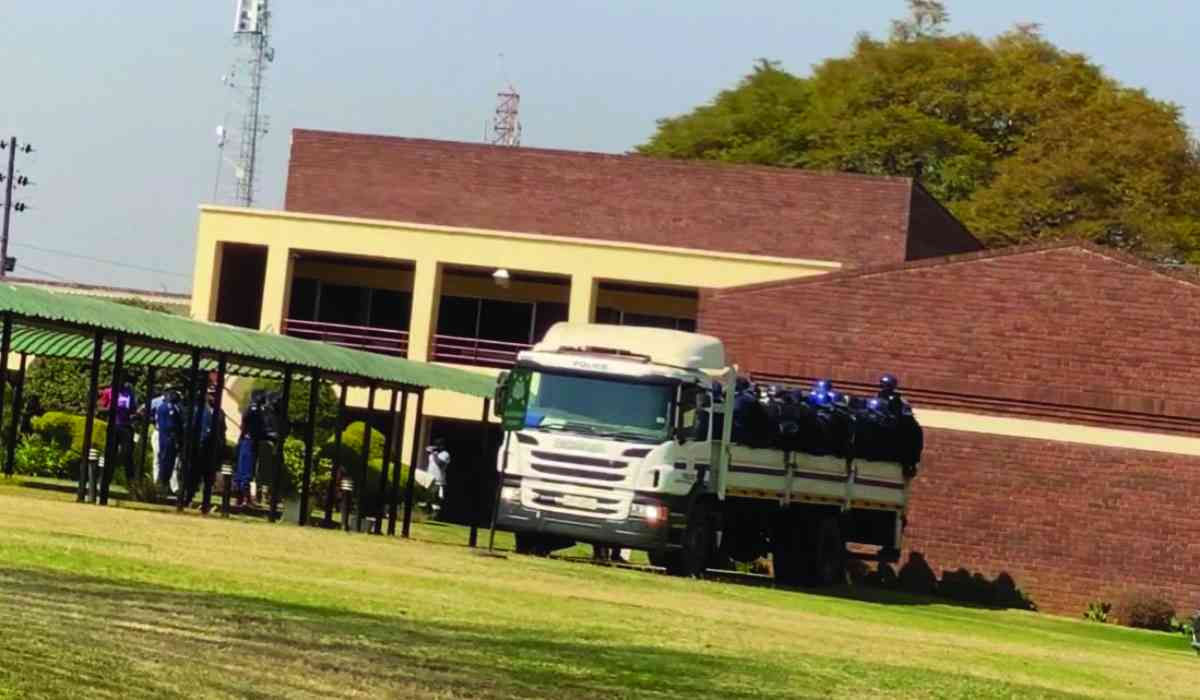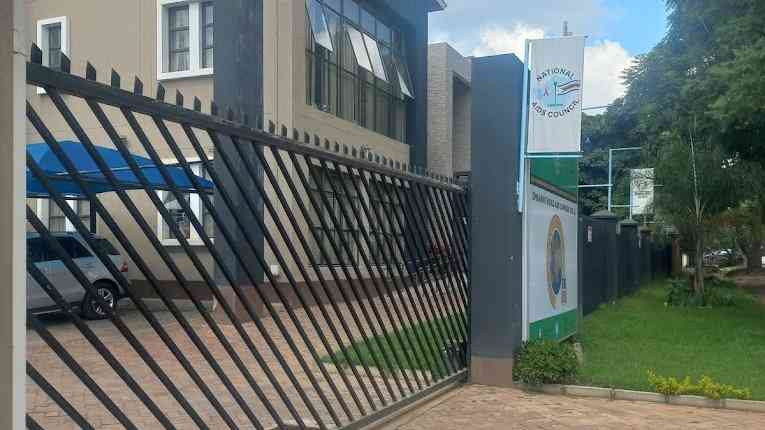
AS a consultant facilitator, my role revolves around guiding discussions and fostering productive dialogue among diverse groups. I take pride in my ability to create an environment where every participant feels valued and heard.
This balance of empathy, neutrality, and respect for individual perspectives is essential, especially in sensitive discussions.
However, a recent experience has profoundly challenged my beliefs about facilitation and civil liberties in a democratic society. The incident began during what was supposed to be a routine meeting.
I had been hired to facilitate a discussion among a group of students during their general council meeting. The agenda was straightforward (at least to me), and I arrived at Zesa Training Centre eager to support the students in articulating their ideas and strategies.
The atmosphere in the room was vibrant, filled with passionate exchanges as they shared their thoughts and concerns.
As we were deeply engaged in our discussion, the atmosphere shifted dramatically. Suddenly, there was news that the riot police had descended upon the premises and of course the young men and women started running in all directions in a state of panic.
The officers ordered everyone to come to an open space and sit down interlinked with one person in front of the other, separated by gender — young men in one line and young women in another. I attempted to inquire about the reason for this intrusion, but my questions were met with silence, ridicule and rudeness.
I watched the students being chased and commanded to sit down, a wave of panic washed over me. What had we done to warrant such a heavy-handed response? Were we being accused of a crime? The uncertainty was terrifying.
- Dope Party fiasco takes new twist as Tendai Ndoro ex-wife is fingered
- Dope Party fiasco takes new twist as Tendai Ndoro ex-wife is fingered
- State House murder raises dust… Family demands answers
- Sikhala’s wife arrested
Keep Reading
These were simply a group of students holding their general council, not engaging in any illegal activity. Had I missed something here as a woman hustling for her livelihood? It was not until we were taken to the Harare Central Police Station that we began to receive some semblance of an explanation.
Upon arrival, we learned that a passer-by had lodged a noise complaint, claiming that our meeting was causing a disturbance —disorderly conduct they named it!
This flimsy allegation was enough for the police to respond, disregarding our rights as citizens engaged in a lawful assembly. It was a stark reminder of how easily civil liberties can be trampled upon under the guise of maintaining order.
I was asked to sit from floor to floor, surrounded by visibly shaken students, overbearing officers (not all of them, some were reasonably kind) feelings of outrage and disbelief overwhelmed me. This was not merely about a noise complaint; it was about the authorities' blatant disregard for our fundamental rights.
It was a striking example of how those in power can act with impunity, particularly against individuals who dare to challenge the status quo. Throughout our detention, some of the officers displayed a complete lack of empathy or willingness to understand our perspective, like we were even given an audience to share any or our sides of the story.
We were treated like criminals — with the dangerous assumption that we were all students and “up to no good”, stripped of our dignity and denied the opportunity to explain ourselves.
This mostly impersonal approach to law enforcement only deepened the chasm of mistrust between the public and those tasked with protecting them.
After several hours of confinement and with the active support from Zimbabwe Lawyers for Human Rights (ZLHR), we were released only after an admission of guilt for “disorderly conduct”, which I still have no idea I even was a part of and what I did that was disorderly as I tried to facilitate a meeting.
I did not do anything wrong but play my role as a consultant who facilitates safe spaces for a plethora of institutions all over the world! You can imagine my shock and despondence when later in the day, after release, I saw a press release from the police claiming there had been violence and property broken hence the cause for the arrest so as to restore “public order”.
Hmm, I certainly did not experience this whole narrative the same way as was captured in this statement. The police had effectively held us captive, disrupting our meeting and infringing upon our freedom based on an unfounded pretext. As far as I know. As I walked out of the station, my mind raced with questions. What if we had been less fortunate with the current excitement of the upcoming Sadc summit?
What if the officers had chosen resort to excessive force? More than some students shared they had experienced? What exactly had happened? I am still filled with too many questions and trauma.
The realisation that such abuses of power could happen to anyone, at any time, was profoundly unsettling. I find myself reflecting deeply on this experience and its broader implications.
It served as a stark reminder of the fragility of our civil liberties and the urgent need to defend them, even in the face of authority that seems to wield its power without accountability.
One of the key lessons I learned was the necessity for increased transparency and accountability in law enforcement. The officers, who arrested us, acted without clear protocols or guidelines, leaving us vulnerable to their arbitrary decisions.
This lack of accountability erodes public trust in the system, making it increasingly difficult for law enforcement and the community to collaborate effectively.
Robust mechanisms must be established to ensure that police actions are scrutinised and that citizens have avenues for redress when unjustly treated.
Another vital lesson was the importance of solidarity and collective action in confronting such challenges. The support and camaraderie I experienced from the students during our ordeal highlighted the power of unity.
Together, we navigated the uncertainty and stress of the situation, drawing strength from one another. This shared experience reinforced our resolve to continue advocating for our rights and the rights of others.
Additionally, this incident underscored the critical role that civil society organisations, such as student unions, play in defending the rights and interests of the people. As a facilitator, I recognise my responsibility to amplify the voices of those fighting for justice and democracy.
I am committed to using my skills to empower individuals and groups in their advocacy efforts. Moving forward, I intend to use this experience as a catalyst for positive change. I will advocate for reforms that enhance transparency and accountability within law enforcement agencies.
Furthermore, I will work tirelessly to empower my fellow citizens to stand up for their rights and hold their leaders accountable. The path to true justice and freedom is fraught with challenges, and my unjust arrest serves as a sobering reminder of the obstacles we face.
Despite the adversity, I remain undaunted. I believe in the power of the people, united and determined, to effect meaningful change. Our collective voice, when raised in unison, can challenge the status quo and demand accountability from those in power. As I reflect on this experience, I am more committed than ever to fostering a society where civil liberties are respected and upheld.
My journey as a consultant facilitator has taken an unexpected turn, revealing the harsh realities of injustice and the urgent need for vigilance in defending our rights. While the experience was traumatic, it has also fuelled my passion for advocacy and reform.
I am determined to ensure that the voices of those advocating for change are amplified and that their rights are protected. Together, we can build a future where justice and freedom are not just ideals but lived realities for all.
Until then, we are blessed to be a blessing (#B2BAB). We were here, becoming better, making our mark, and leaving our footprint as we make the world a better place!
- Chirenje writes in her capacity as a citizen of Zimbabwe. Follow her on social media for more Lifezone with Grace conversations on Twitter: @graceruvimbo; Facebook: Grace Ruvimbo Chirenje; Instagram: @graceruvimbo






